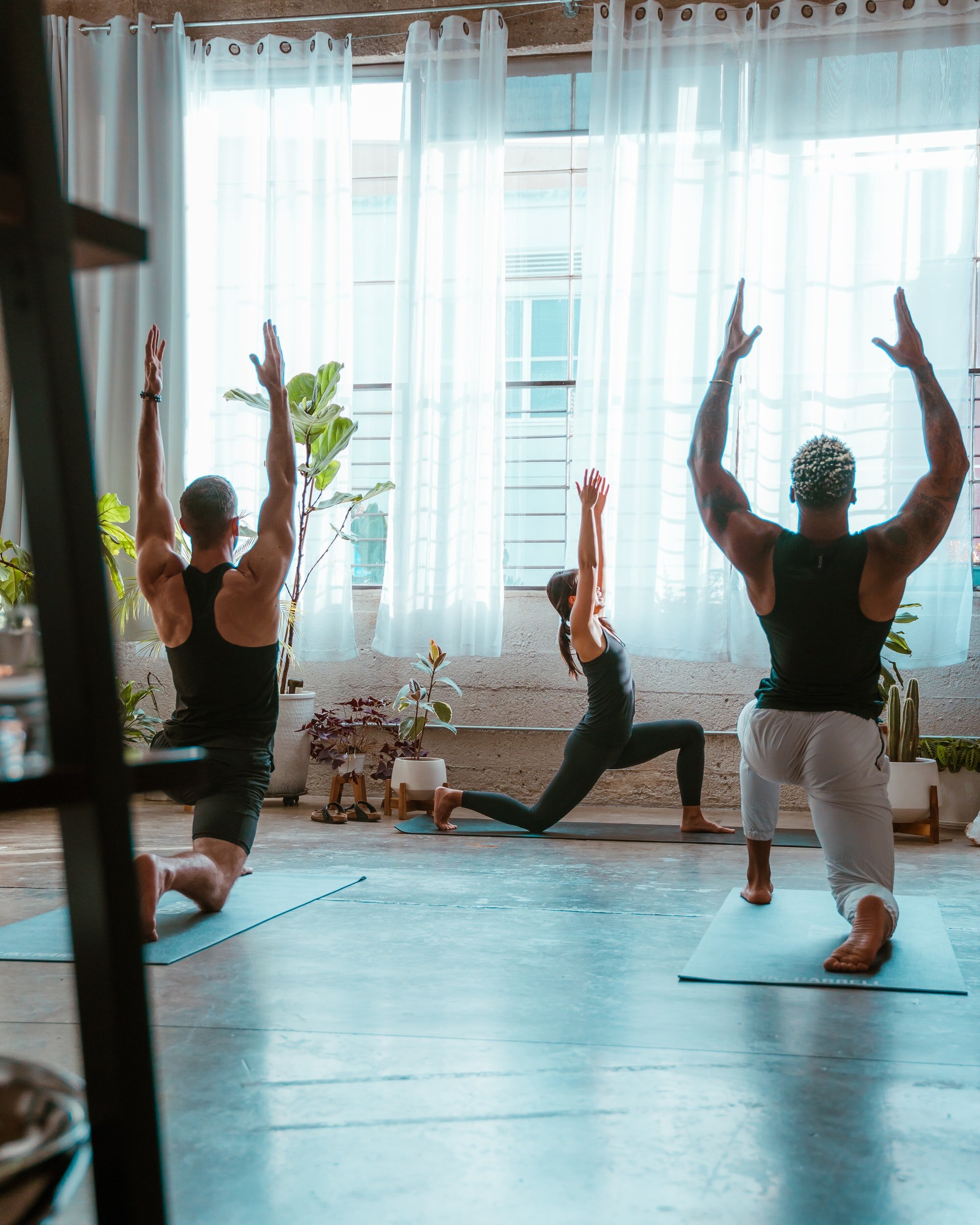5 Things to consider when choosing a Yoga Teacher Training
You’re thinking of embarking on a Yoga Teacher Training - how exciting! We understand that the process of choosing a training may seem daunting and somewhat confusing.We are here to help makes things a bit easier! When it comes to Yoga Teacher Trainings in South Africa, there are a number of things to consider before choosing the right one for you.
Here are some of our recommendations of things to look at:
Understanding Accreditations
As you begin to look at Yoga Teacher Trainings, you may come across a variety of accreditations. Generally, an accreditation showcases that a training and/or teacher has met the necessary curriculum standard and teaching experience in order to offer that training. Although accreditations can be really beneficial, it really depends on WHY you are doing the training and WHAT you want to do after the training (i.e. are you doing the training for your own personal experience or for to teach internationally)
Some common Accreditations we see on South African Teacher Trainings:
Yoga Alliance (US) is the largest nonprofit association representing the yoga community, that fosters and supports the high quality, safe, accessible, and equitable teaching of yoga.
Yoga Alliance International (not to be confused with Yoga Alliance US) also has a Yoga Alliance Africa branch. YAI is a renowned international organisation, recognised and registered with the government of India that seeks to promote and create minimum standards for yoga teachers and schools.
You may also come across Yoga Teachers Fellowship which is an autonomous non-profit organisation (No 029 725 NPO) that promotes the principles of yoga and represents the interests of yoga teachers in South Africa. Although the YTF is affiliated with the International Yoga Federation, it works on a code of conduct / pledge protocol for recognition.
So which is the best accreditation? And does a training HAVE to be accredited? Well thats completely up to you! There are a number of schools that offer trainings that do not hold an accreditation. In fact, to teach Yoga in South Africa you do not need a specific accredited course as there are so many different ones available. What IS important is that you understand what accreditation (if any), the course holds and if it offers you what you need. If you have any questions about accreditations and are unsure, feel free to reach out to us.
If you are uncertain which accreditation your school / teacher holds, each organisation offers a directory of accredited and registered teachers on their website.
2. Number of Hours: 200hour vs 300/500hour
Generally, a 200 hour Yoga Teacher Training is the basic requirement in order to teach yoga. This can be seen as the “foundation” training.
Thereafter, you can expand your knowledge by completing various additional training modules to build on your understandings and teachings. (i.e. 50hour Yin Yoga Training / 30 Hour Prenatal Training). *These shorter courses MAY be registered as YACEP (Yoga Alliance US Continuous Education hours) or may be registered with another organisation.
A 300-hour Yoga Training is generally an additional / “advanced” training which is done after a 200hour, to become a 500hour Yoga Teacher.
Now this is where it gets confusing… in SOME instances, schools offer a Foundation 300hour Training to become a Yoga Teacher. If this is the case, it is useful to clarify whether this is a foundation or advanced training course.
3. Choosing the right Teacher / School
Although this is number 3, I believe it plays a CRITICAL role in choosing a Yoga Teacher Training. Due to the various styles and approaches to yoga, yoga teacher trainings can be vastly different. Not only in their styles (i.e. Hatha / Vinyasa) but also in their approach to teaching. Although all 200hour Trainings have a similar foundation of content that is essential to understanding and teaching yoga, trainings tend to have their own uniqueness too.
It is essential that you understand what you are signing up for as yoga teacher trainings are a big monetary investment, and you want something that meets your expectations. Therefore, its recommended that you:
Visit and Practice with the School or Teacher hosting the Training to get a feel for their style of teaching.
Meet with the Lead Teacher to discuss the Training as well as present any questions you may have.
If possible, explore various options in your environment to make sure you find the right fit.
4. Investment
Yoga Teacher Trainings are a big monetary investment and its important to consider the financial aspects of the course too. A lot of time, preparation and planning goes into these trainings as well as registration costs to accreditation organisations. 200 hour Teacher Trainings in South Africa range from R15 000 - R30 000. This depends on a number of aspects such as studio expenses, training inclusions, accreditation type etc. It is worth it to look around and find the training that best suits your needs and budget.
Many Trainings offer Payment Plan options as well as Scholarships which you can discuss directly with them.
5. OTHER ASPECTS TO CONSIDER
Full-Time vs Part-Time: A full time training generally means all day, for 23-30 days. These are also known as Intensive Trainings. Part-Time training vary from 3 months - a year (possible longer.) These depends on how often a week there will be lectures. Some trainings will require additional self-study work in the week. For these details, ensure you look at the schedule and ensure you can commit to and attend to as many of the sessions as possible.
Online vs In Person: Since 2020, many studios have moved their trainings online. Let me first say that there is so much benefit in doing a training in person and I personally believe that personal interaction is absolute key in a training. However, in some cases, that may not be possible. (i.e. due to schedule or even lack of trainings in your area). Coming from someone who has done Online Trainings, it definitely has its perks too! Once again, it comes down to YOU and how YOU feel you would study best. Here are two additional points to consider if doing a training online:
Via Zoom: Trainings via Zoom allow for live interaction giving you more contact time with your trainer. Some trainings may require you to supplement these sessions with video lectures / reading material.
Self-Paced Online: These trainings are done in your own pace with less contact time with a teacher. This means video content, reading material and possible online quizzes, instead of face to face interaction.
In conclusion, there are many things to think about when doing a training and it all comes down to WHAT YOU NEED. The best advice we can give is to do the research and ensure you embark on the right training for YOU. A training that meets your expectations and allows you to enjoy every moment of the journey.
If you have any questions about trainings, please feel free to contact Tarryn on info@yogasouthafrica.co.za




